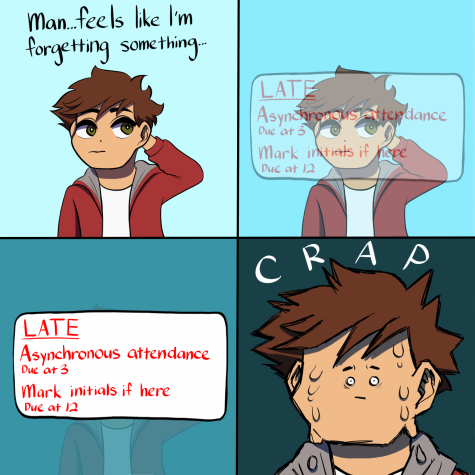College: The beaten path, but not the only path
Since we were young, we’ve been asked the same question over and over. Where do you want to go to college? There is an assumption that all a student is working towards is a chance to attend the university of their dreams, as if that is the only way an individual can gain success. Among the college fairs, AP courses, and pressures from mentors, it’s no wonder why many students believe college is the only option for life after high school.
But what if it wasn’t?

For many families, a student’s future is set in stone. After walking across the stage to accept their high school diploma, a teenager will go on to attend college. However, this isn’t always the case. Factors such as financial situations or self discoveries can lead to the need to go in a different direction. Yet at Lowell, an environment filled with high achieving, college-oriented individuals, discussions regarding other possibilities are not a common occurrence. Whether a student decides to enter the workforce, travel the world, or venture down their own path post graduation, finding alternatives to college should be considered just as viable an option.
Attending a four-year university is a major financial commitment and not everyone has the means to fund such endeavors. With college tuitions increasing almost eight times faster than wages over the past couple decades, education is clearly an expensive investment. On average, it takes graduates 20 years to pay back their school loans, with the national student debt currently over $1.6 trillion. We can’t assume that all graduates are ready to take on such a burden right after high school. This is especially relevant at a time when many families are struggling with money and might be in need of another source of income. Due to COVID-19, unemployment rates peaked in 2020 at an unprecedented level of 14.8 percent. High school graduates might get a full time job to help alleviate their families’ financial stress without exacerbating their hardship by adding in the cost of attending college.
Entering the workforce instead of attending college doesn’t necessarily mean these individuals won’t be successful. In fact, while tuition rates have increased, the value of a degree has depleted, with 25 percent of college graduates now earning no more than the average high school graduate. There are many jobs available that do not require a degree, and gaining valuable work experience can lead to myriad other opportunities, while producing a decent income.
Another possibility is vocational school. Being trained for a specific job in a skilled trade career is both an inexpensive and viable option. Manual laborers and trade workers are a vital part of our advancement as a society, and we should not discourage those who have an interest in such fields. Where would we be without our paralegals, electricians, or dental assistants? We’ve witnessed this year in particular the necessity for health care support, many of whom are certified through vocational school.
Opportunities for lucrative jobs continue to emerge for those who decide to forego college. In fact, companies such as Google and Apple are now hiring employees with the right skills, whether they have a degree or not. Google recently announced that they are offering a six-month course to receive a Google Career Certificate, which they will consider equivalent to a four-year degree at a fraction of the cost. The UC Extensions also provide professional certificates in various disciplines, such as accounting or digital arts. These various programs can give individuals the expertise needed for careers that don’t require a degree.
That being said, obtaining a college degree definitely has its benefits. On average, college graduates have 50 percent more job opportunities and significantly lower rates of unemployment than those without a degree. Additionally, high school graduates only earn about 60 percent of what a typical college graduate earns. While these numbers certainly demonstrate why one would pursue a degree, college doesn’t have to be the be-all and end-all.
Some may also question who they are beyond the walls of a classroom. Going straight to college without a pause to consider life’s options could leave students just as ambivalent about their futures as ever, and quite possibly with the added debt of student loans. In some cases, these individuals may not even end up with a degree to show for it. In the United States, the dropout rate for college is 40 percent, illustrating how many students were perhaps misguided in their choices after high school. Taking time off to travel, do volunteer work, or get a job can provide an education and experience that goes outside the limitations of a structured school system.
Some could argue that since Lowell’s curriculum is geared towards college readiness, it should be a given that all senior graduates are college bound. This isn’t necessarily true. Wide-eyed ninth graders stepping through the doors of their new high school cannot be expected to walk out with the same aspirations four years later. Whether they have a change of heart, experience burnout, or are grappling with an unexpected situation, choosing to not pursue a college degree should be just as respected as any other mindful decision.
This is not to say college isn’t a great choice. For most students, pursuing a higher education is both a beneficial and transformative experience. It just shouldn’t be the default. We ought to be asking students what they really want, instead of assuming college is the only place for them. Our society depicts attending a four-year college as the key to living the American dream, but as many people find success through other means, we need to make sure that those who consider different options are not left out of the conversation.











